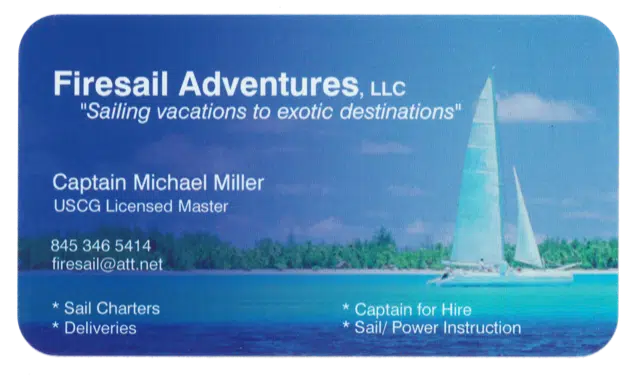Opinion
By Larry Sand
11/19/25
The latest news on history, civics, and patriotism in our public schools is a mixed bag.
In the early days of our republic, George Washington understood that civic education was essential for preserving freedom. More recently, the late Supreme Court Justice Sandra Day O’Connor reminded us that civic knowledge isn’t inherited genetically but must be taught to each new generation. Over time, Americans have generally understood that protecting our freedom relies on passing down our founding principles and history through education.
Ronald Reagan also reminded us of the fragility of freedom. “It’s never more than one generation away from extinction. It is not ours by way of inheritance; it must be fought for and defended constantly by each generation, for it comes only once to a people.”
So, where does the country currently stand on the issue?
The bad news
The results of the latest NAEP U.S. history and civics test, last administered in 2022, were atrocious. The scores reveal that only 13% of 8th-graders met proficiency standards for U.S. history, meaning they could explain key themes, periods, events, people, ideas, and turning points in the country’s history. Additionally, about 20% of students scored at or above the proficient level in civics. Both scores are the lowest ever recorded on these two tests.
Similarly, according to a 2024 survey, 60% of college students could not correctly identify the term lengths of members of the U.S. Congress, and 63% were unable to identify the Chief Justice of the Supreme Court. Notably, these were multiple-choice questions, so students didn’t need to recall John Roberts’ name; they only needed to recognize it. The same applied to the Speaker of the House, Mike Johnson, whose name was known to only 35% of students. Over two-thirds did not know that impeachment trials take place in the Senate. A majority of students incorrectly believe that the Constitution was written in 1776 rather than 1787.
It’s not surprising that many Americans lack knowledge of history and civics, especially considering a report from the Goldwater Institute. Released in late January, it highlights political bias in our schools. Tyler Bonin from the policy group states that about 25% of American classrooms include work by Marxist Howard Zinn.
Goldwater asserts that Zinn’s best-selling book, “A People’s History of the United States,” which is used with the online “Zinn Education Project,” misleads students and draws from Karl Marx to portray American history as a “conflict between capital and labor.”
Zinn argued that teaching history “should serve society in some way” and that “objectivity is impossible and it is also undesirable.” When criticized for writing a history book that was loose with the facts, he openly admitted it, saying his goal was to stir up a revolution.
Additionally, a new report from Defending Education discloses that 55 K-12 school districts have spent over $17 million on ethnic studies, professional development, curricula, textbooks, and programming.
The report uncovers the “K-12 Liberated Ethnic Studies Industrial Complex” and the various players and components that comprise it. It aims not only to reveal how much school districts spend on far-left ethnic studies curricula, textbooks, and professional development, but also to show how a small network of “experts” and professors influences the development of lessons and curricula for major education content providers.
The summary states, “Lessons and units often center around racial identities (intersectionality), an oppressor versus oppressed view of the world (critical consciousness), who has privilege (i.e., “white privilege”) and who does not, historical examples of “resistance” to Western culture (Black Lives Matter), and engagement in social justice.”
Some good news
Amid intense debates about political indoctrination in schools, new national data show that teachers are generally more supportive of teaching patriotic concepts than parents or the public, and most believe the United States should be presented positively in schools.
The findings are based on an analysis of nationally representative polls of more than 1,000 K-12 teachers, over 1,200 American parents, and more than 1,200 adult Americans conducted in the spring of 2025, and were published in the journal Education Next. The surveys were conducted by EdChoice, a nonprofit advocacy organization supporting school choice, and the Morning Consult Public Opinion Tracker.
More than 80% of K-12 teachers believe it is “very” or “extremely” important to teach students about the Constitution’s core values. Furthermore, 62% consider it crucial to teach that America is “a fundamentally good country,” and 57% think schools should teach students “to be patriotic and loyal toward the U.S.”
In both cases, teachers are more likely than parents or the general public to favor teaching these concepts.
The authors of the study, Brian Kisida, Colyn Ritter, James V. Shuls, and Gary Ritter, clearly state, “The evidence does not indicate that an anti-American teacher workforce is responsible for the general malaise among youth toward America.” They also cite research from the conservative Heritage Foundation showing that teachers “are largely moderate and generally hold less extreme partisan views than the public or politicians.” In other words, the political center still mostly holds in America’s classrooms—even if it often seems absent everywhere else.
Parents must be vigilant
Does your child’s teacher promote Howard Zinn’s far-left ideas, or do they have a favorable view of the country and teach traditional civics?
If you have to send your child to a school—especially a government-run one—make sure to ask them every day when they come home, and find out the answer to that question.
That’s why parental freedom is so important. If you disagree with your child’s teacher’s views at your local school, you should be able to choose other options for their education. In fact, school choice is expanding. More on this soon.
* * *
Larry Sand, a retired 28-year classroom teacher, is the president of the non-profit California Teachers Empowerment Network – a non-partisan, non-political group dedicated to providing teachers and the general public with reliable and balanced information about professional affiliations and positions on educational issues. The views presented here are strictly his own.
Link: https://www.forkidsandcountry.org/blog/the-sandstorm-civics-education-update/#none
The views expressed in this commentary are those of the author and do not necessarily reflect the official position of Citizens Journal Florida









